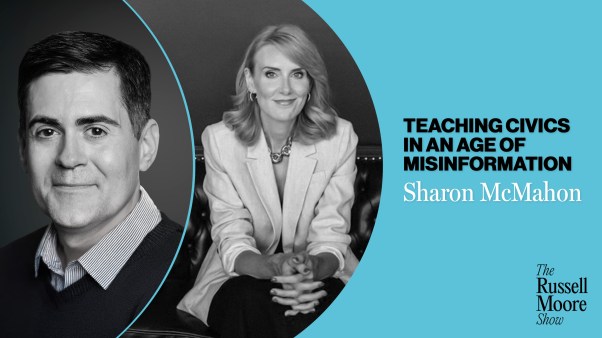It’s one of the most quoted verses of the Bible: “Do not be anxious about anything, but in every situation, by prayer and petition, with thanksgiving, present your requests to God.”
Echoing the words of Jesus to leave tomorrow’s worries for tomorrow, Philippians 4:6 points us to an antidote for anxiety: prayer.
A current situation causes anxiety. We cannot see the way ahead. We bow our heads to petition for help. What could be simpler?
But our requests reveal much about our understanding of ourselves, of anxiety in general, and of God. Our prayers in anxious moments can actually lead to greater anxiety unless we pay close attention to the kinds of petitions Paul has in view when he gives his exhortation.
We are, indeed, anxious about what the future holds, wondering about what to do when difficulties arise in our friendships, our finances, and our families. If we could just know a bit more about what is coming next, surely we could lay to rest our anxieties and take a proactive stance. And certainly, we could relax and trust God!
We make our requests known to God: “Lord, please show me what to do next. Make tomorrow clear.”
We reason that if we just had the benefit of clear divine direction, we would absolutely follow it. But the story of Moses at the burning bush warns us otherwise. Moses is given instruction from the mouth of God himself to go to Egypt and deliver his people. The result? Anxiety in the extreme. An unwillingness to follow. A crisis of identity. Clear words from the Lord yielded neither confidence nor peace for Moses.
It is one thing to tell God that we are anxious about the future. It is another to ask him to reveal the future to us.
We reason that if God would show us a sure sign, we would have peace. But the story of Gideon warns us otherwise. His requests for God to prove he will do what he has already promised dishonor the one he petitions. By laying out a fleece, he puts the Lord his God to the test. Miraculous signs performed at his demand yield neither resolve nor action in Gideon.
We reason that if we knew what tomorrow would bring, we would use that information wisely to make good choices. But the story of Peter’s denial warns us otherwise. Jesus tells him explicitly how anxiety will cause him to sin in his immediate future. He does not alter his course. Peter’s knowledge of the future serves not to correct him but to condemn him. Foreknowledge yielded neither repentance nor humility in Peter.
It is one thing to tell God that we are anxious about the future. It is another to ask him to reveal the future to us. The first is a confession; the second is a petition. Both confession and petition are facets of prayer, but while our confessions of anxiety or sin are always godly, not all of our anxious petitions are.
In the case of asking God for knowledge of the future, we should be circumspect. That knowledge belongs to the secret things of God (Deut. 29:29). Those who seek to use prayer as a crystal ball forget their calling to walk by faith and not by sight, and they forget the benediction of Christ: “Blessed are those who have not seen and yet have believed” (John 20:29).
Has God at various times revealed clear, specific direction to his servants? Yes. The Bible preserves these accounts for us. But it does not offer them as normative. Nor, as we have seen, do those revelations necessarily yield the peace we would expect them to.
Remember, Hebrews 11 does not say that Abel, Enoch, Abraham, Isaac, Jacob, and the rest of its great host walked forward with perfect clarity and confidence; they walked by faith. No doubt, their anxieties were many and their line of sight was obscured. But their God was faithful. Their God is faithful.
So, what requests should the anxious present to God? That he increase our faith (Luke 17:5), that he teach us to trust (Ps. 71), that he grant us wisdom (James 1:5), that he help us take our anxious thoughts captive (2 Cor. 10:5), that he sustain us today with the daily bread of his presence (Matt. 6:11), that he remind us of his past faithfulness to us and to all generations (Ps. 119:90).
These requests are answered with “the peace of God, which transcends all understanding” (Phil. 4:7). Not the precarious peace of knowing what the future holds, but the perfect peace of resting in the one who does.











